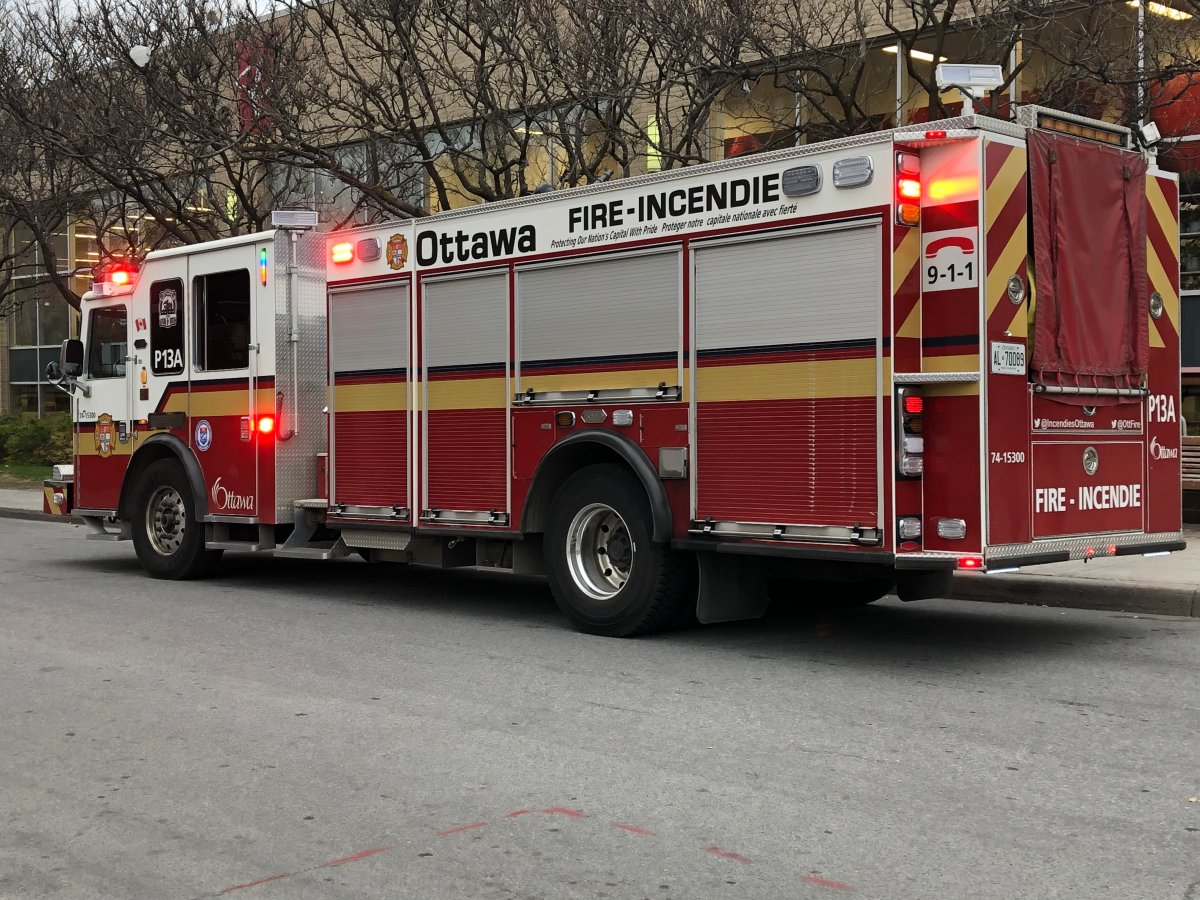As 2019 comes to a close, Global News reached out the heads of several major organizations in the city to look back on the last decade and look forward on the next.

Ottawa fire Chief Kim Ayotte took up the job in August 2018 and was soon put to work as tornadoes tore through the capital a little over a month later. He would then lead the department through the tragic crash at Westboro station and floods that forced heavy evacuations in the city earlier this year.
In an interview with Global News, Ayotte looked back on how firefighting has changed in the last decade and looked forward to what the coming year holds for Ottawa Fire Services.
Parts of the following interview have been edited for length and clarity.
What were you doing in 2010?
In 2010, I was the chief of special operations, responsible for all technical rescue teams (The teams include Hazmat/CBRNe, extrication, water and ice rescue, rope rescue, trench rescue and structural collapse and confined space rescue) and emergency management for Ottawa fire.

What developments do you hope to see in Ottawa over the next decade from a firefighting and safety perspective?
Since becoming fire chief in August 2018, I have started many initiatives that will continue to grow over the coming decade. These include:
- Improving health and safety for our firefighters
• The implementation of the Wellness and Fitness Initiative and mental health programs
• Introducing a second set of bunker gear for crew members and decontamination facilities for station wear
• Continue with evidence-based research projects that put [Ottawa Fire Services] at the leading edge of positive change (e.g. contamination study with Ottawa University) - Technology and communications
• Easily accessible data for every officer to help them manage their teams and plan effective responses
• Reduction in time spent on administrative functions by improving technology functionality
• New station alerting and paging system - Training
• Support our training division with additional resources for the implementation of the officer development and the certification of all firefighters to National Fire Protection Association standards - Partnerships and special operations
• Promote interoperability with our allied partners (paramedics, police, etc.) while respecting our distinct areas of responsibility
• Promote joint teams such as urban search and rescue, chemical, biological, radiological, nuclear and explosive materials and the fire support unit, which includes public order, rescue task force and object removal - Recognition
• Create a new Fire Chief’s Commendation Awards event for [Ottawa Fire Services] personnel and family

What has been the single biggest game-changer in fire services over the past 10 years?
For Ottawa Fire Services, it’s been our involvement in an official accreditation process. In 2014, and again in 2019, Ottawa Fire Services was one of only 200 fire services in the world granted accredited agency status by the Commission on Fire Accreditation International.
The CFAI accreditation model and the process of self-assessment has been and will continue to be instrumental in our service’s excellence and our ability to meet the challenges we have faced thus far. CFAI accreditation is much more than a point of pride for Ottawa Fire Services, it is an opportunity to learn alongside the best in our field and it is a commitment to continuously improve our services.
It is an important pledge to our community that we are striving to offer the best possible service. It is also a confirmation that we are holding ourselves accountable to keep the city of Ottawa safe and secure.
What has been your biggest win as a firefighter this decade?
The 2016 provincial legislation creating a presumption that PTSD in first responders is a workplace injury. Evidence is clear that first responders are at least twice as likely to suffer from PTSD because of the traumatic events they deal with at work.
What has been your biggest disappointment or miss? What did you learn from it?
The fire service is still a male-dominated occupation, and we have made up little ground in attracting more women to join as firefighters. We have learned that our old outreach methods have not produced the results we would like to see. We now recognize that we need evidence-based research and tools to help us move the yardsticks and attract more women to the fire service.
What was the biggest local story of the last decade for Ottawa Fire Services? Why?

How has the makeup of Ottawa Fire Services changed over the last decade? How does this guide your decisions as fire chief?
Changes to our service are primarily based on three factors: growth, first-in response time and our effective response force time. We now use sophisticated computer modelling to develop our standards of cover (i.e. deployment model) and decide what resources are needed. This also dictates the need for future stations based on development and population growth.
What is the biggest challenge facing Ottawa Fire Services over the next decade?
With the aging population, fire prevention and public education will become even more important in the future. Additional fire and rescue resources will also be needed as the cfity continues to grow and develop.
What’s your biggest hope for Ottawa Fire Services in the coming decade?
I hope that Ottawa Fire continues to be a leader in the industry, always looking to improve and to find innovative ways of providing our services and protecting the public.




Comments